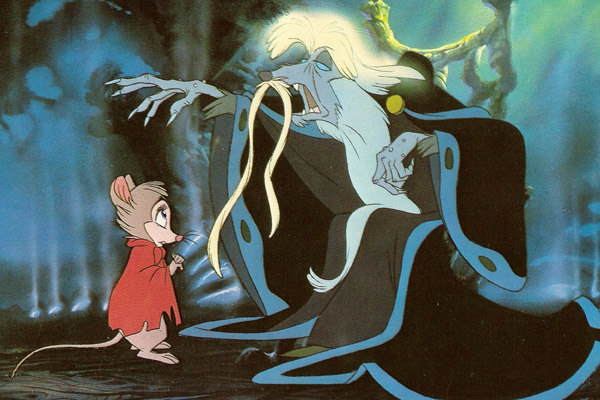
NPR has a nice rundown of a new paper in Science by four three University of Chicago psychologists and neuroscientists, "Empathy and Pro-Social Behavior in Rats." The results shouldn't come as a surprise to anyone who's read Mrs. Frisby and the Rats of NIMH—when I was a kid the acronym NIMH scared the crap out of me—but it's nice to have some hard data.
To test for empathically motivated pro-social behavior in rodents, we placed a free rat in an arena with a cagemate trapped in a restrainer. After several sessions, the free rat learned to intentionally and quickly open the restrainer and free the cagemate. Rats did not open empty or object-containing restrainers. They freed cagemates even when social contact was prevented. When liberating a cagemate was pitted against chocolate contained within a second restrainer, rats opened both restrainers and typically shared the chocolate. Thus, rats behave pro-socially in response to a conspecific’s distress, providing strong evidence for biological roots of empathically motivated helping behavior.
Here's the free rat learning how to open the door (updated with better video):
One of the study's authors, Peggy Mason, notes that after the first time the rat is freed, the rats seem to "celebrate" with affectionate behavior.
It's not all sunshine and roses, though:
A greater proportion of female rats (6/6) than male rats (17/24) in the trapped condition became door-openers (P < 0.05, χ-square), which is consistent with suggestions that females are more empathic than males (7, 12, 13). Further, female rats in the trapped condition opened the restrainer door at a shorter latency than males on days 7 to 12 (P < 0.01, MMA, Fig. 3A). Female rats were also more active than males in the trapped condition (P < 0.001, ANOVA) but not in the empty condition (Fig. 3B).
Dudes, man.
My only disappointment in the study: that it came out of the neuropsych lab, and not the University of Chicago econ department, where it would really do some good.


